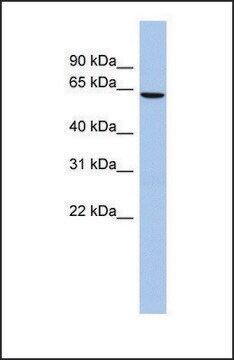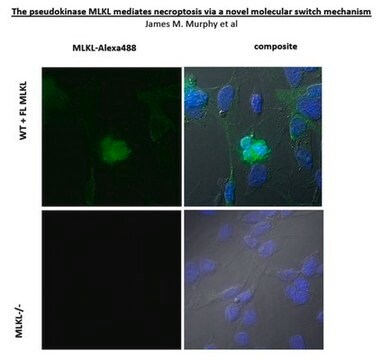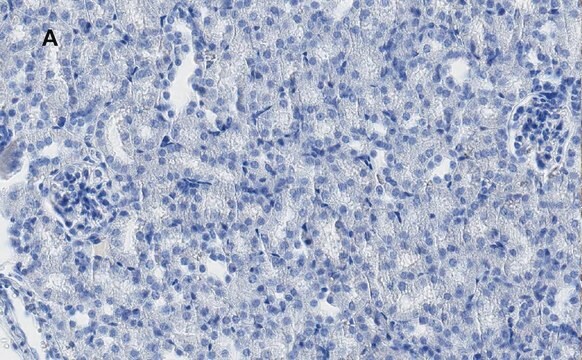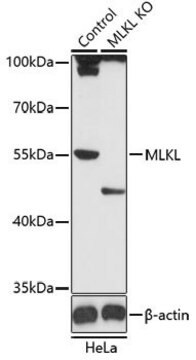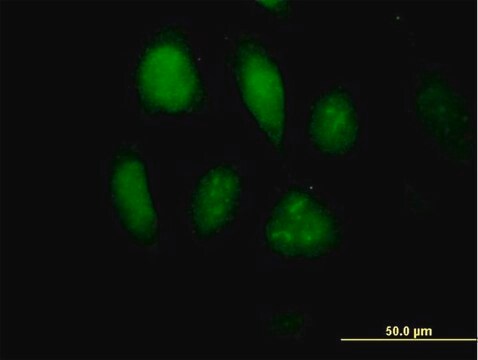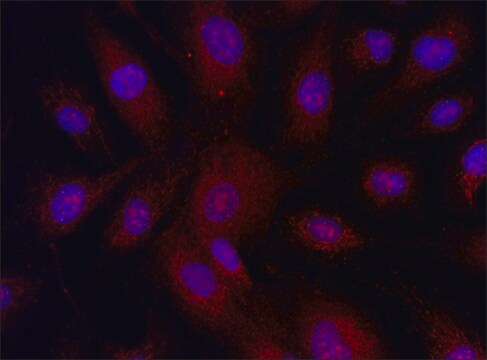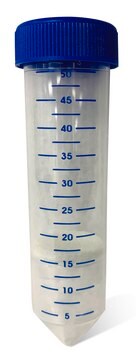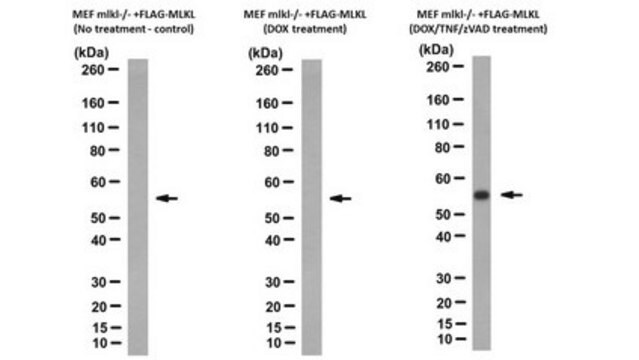ABC2036
Anti-MLKL
from rabbit
Sinonimo/i:
Mixed lineage kinase domain-like protein, hMLKL
About This Item
Prodotti consigliati
Origine biologica
rabbit
Livello qualitativo
Forma dell’anticorpo
affinity isolated antibody
Tipo di anticorpo
primary antibodies
Clone
polyclonal
Reattività contro le specie
human
tecniche
immunohistochemistry: suitable (paraffin)
western blot: suitable
Isotipo
IgG
N° accesso NCBI
N° accesso UniProt
Condizioni di spedizione
ambient
modifica post-traduzionali bersaglio
unmodified
Informazioni sul gene
human ... MLKL(197259)
Descrizione generale
Specificità
Immunogeno
Applicazioni
Apoptosis & Cancer
Immunohistochemistry Analysis: A 1:250 dilution from a representative lot detected MLKL in human tonsil and human squamous cell carcinoma tissue sections.
Qualità
Western Blotting Analysis: A 1:500 dilution of this antibody detected MLKL in 10 µg of HT-29 cell lysate.
Descrizione del bersaglio
Stato fisico
Stoccaggio e stabilità
Altre note
Esclusione di responsabilità
Non trovi il prodotto giusto?
Prova il nostro Motore di ricerca dei prodotti.
Codice della classe di stoccaggio
12 - Non Combustible Liquids
Classe di pericolosità dell'acqua (WGK)
WGK 1
Certificati d'analisi (COA)
Cerca il Certificati d'analisi (COA) digitando il numero di lotto/batch corrispondente. I numeri di lotto o di batch sono stampati sull'etichetta dei prodotti dopo la parola ‘Lotto’ o ‘Batch’.
Possiedi già questo prodotto?
I documenti relativi ai prodotti acquistati recentemente sono disponibili nell’Archivio dei documenti.
Il team dei nostri ricercatori vanta grande esperienza in tutte le aree della ricerca quali Life Science, scienza dei materiali, sintesi chimica, cromatografia, discipline analitiche, ecc..
Contatta l'Assistenza Tecnica.